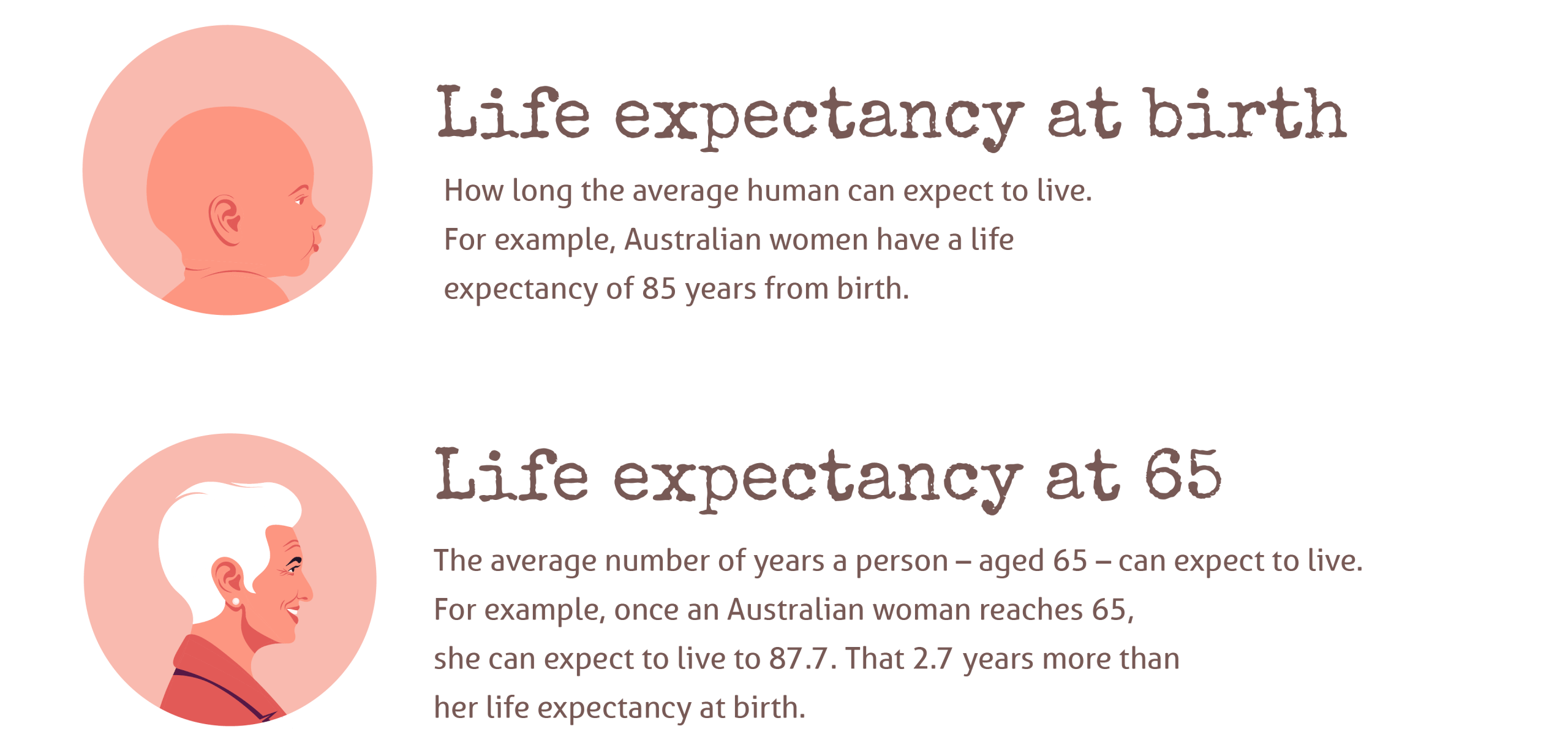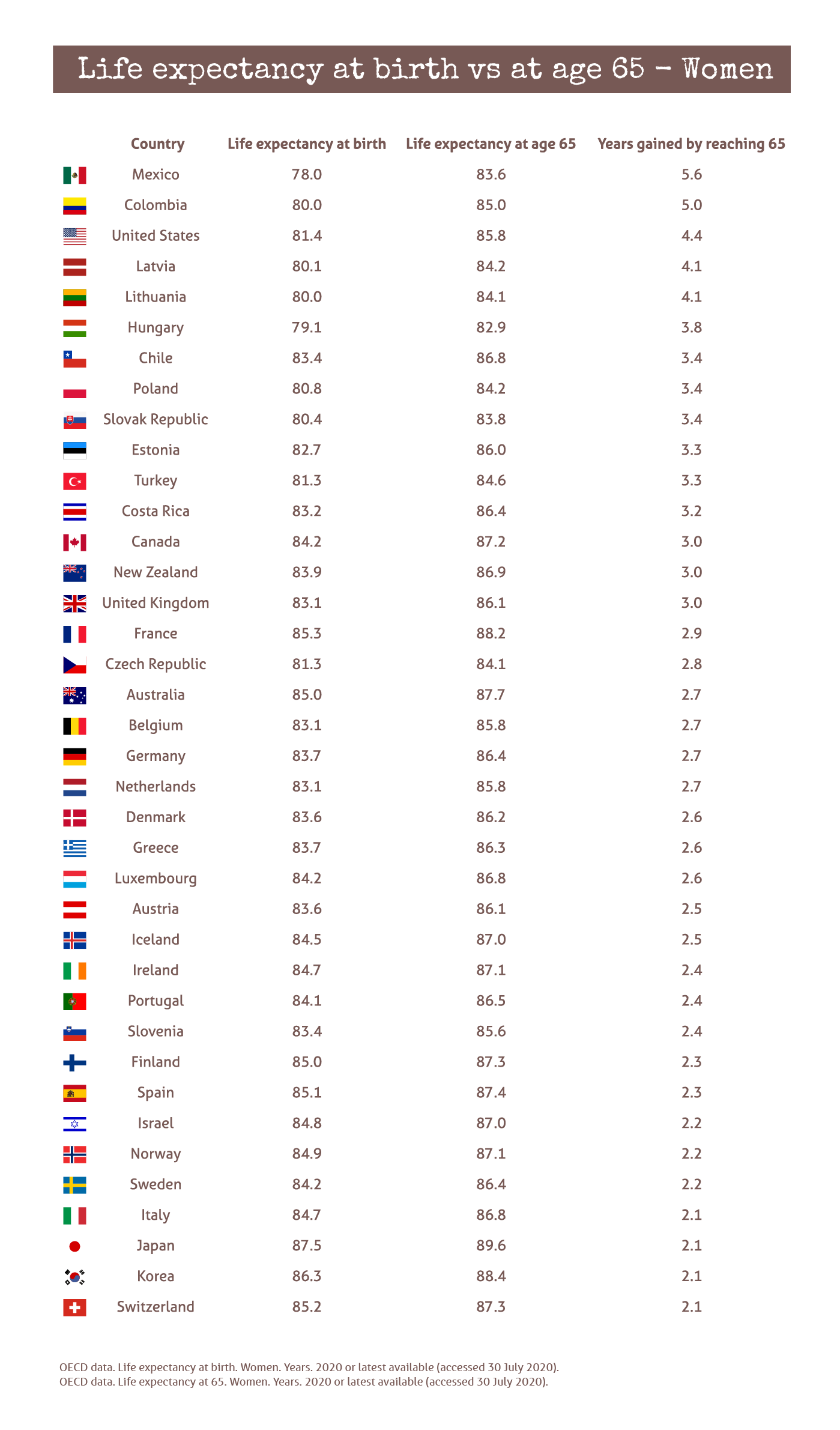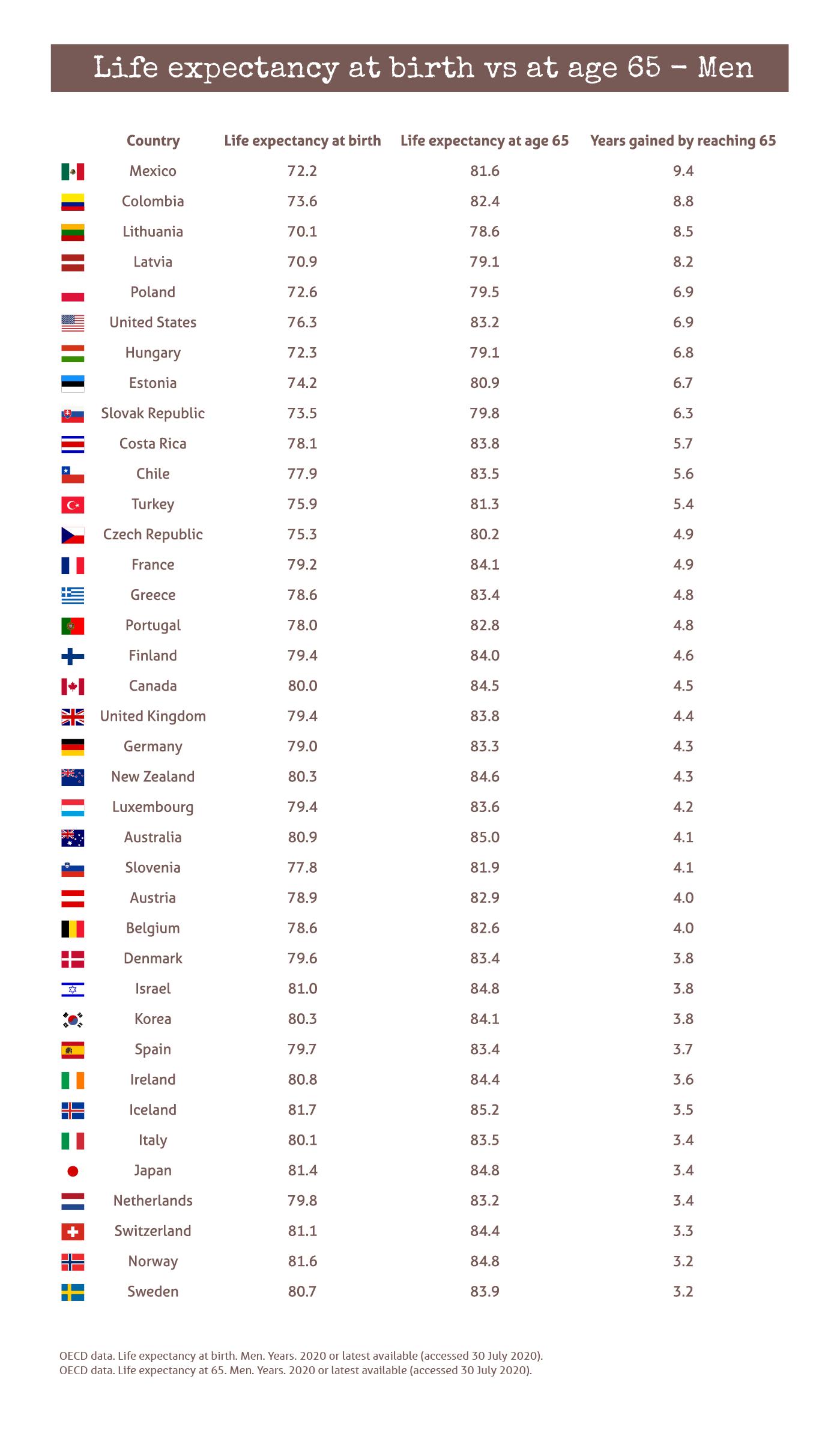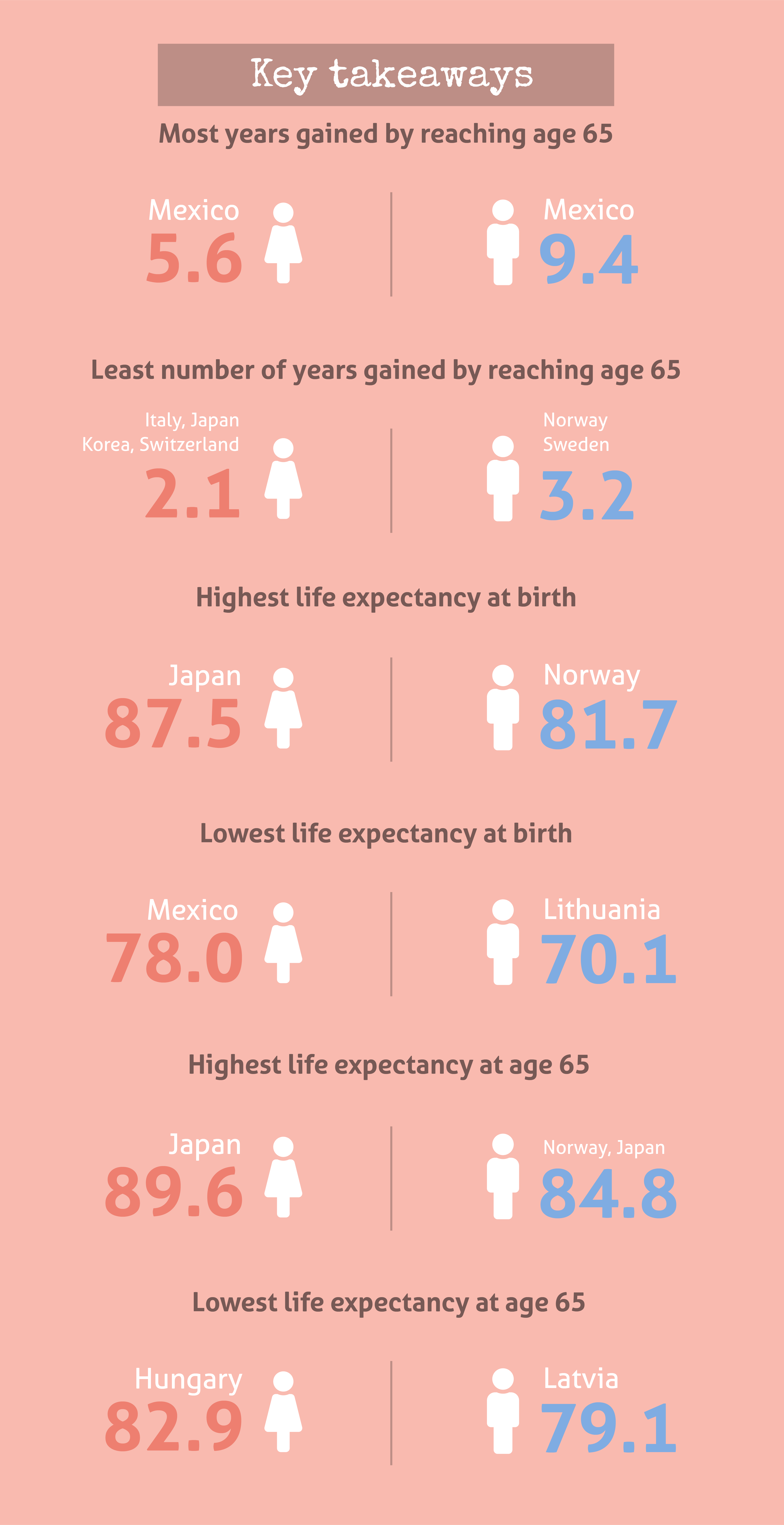The Burrow

Good news! If you reach 65 years old, you could live longer than first predicted.
That’s according to recent OECD data reporting that life expectancy at birth and life expectancy at age 65 give different projections.
However, just because your life expectancy could be longer than first predicted, being covered by life insurance remains important. At age 65, it’s likely you may still be working given Australia’s pension age continues to rise each few years and will be sitting at 67 years as of 1 July 2023.3
In Australia, life expectancy at birth is 85 years, compared to 87.7 years if you reach age 65. That means that the average person will still be around for another 20 years post-retirement! Regardless of your age and what stage of your life you are at, life insurance is valuable to have as it can provide you and your loved ones peace of mind in the event of your passing.
In this article, the life insurance experts at Compare the Market have revealed how long citizens in each of the 38 OECD member countries can expect to live – both from birth and once they reach the age of 65. Read on to find out which nations have the biggest differences.


| Women | Men | |
| 1 | Mexico – 5.6 | Mexico – 9.4 |
| 2 | Colombia – 5.0 | Colombia – 8.8 |
| 3 | United States – 4.4 | Lithuania – 8.5 |
Out of the 38 OECD member countries, Mexico recorded the biggest jump in life expectancy for both women and men. From birth, Mexican women can expect to live to 78.0. However, once they reach age 65, their life expectancy rises to 83.6 (5.6 years). Mexican men go from 72.2 to 81.6 (9.4 years).
| Women | Men | |
| 1 | Italy – 2.1 | Norway – 3.2 |
| 2 | Japan – 2.1 | Sweden – 3.2 |
| 3 | Korea – 2.1 | Switzerland – 3.3 |
| 4 | Switzerland – 2.1 |
Italian, Japanese, Korean and Swiss women all live an average 2.1 years longer once they hit age 65. For men, Norway and Sweden recorded the lowest increase. While these countries don’t make a big jump, it’s likely due to their already high life expectancies – so it’s not all bad.


